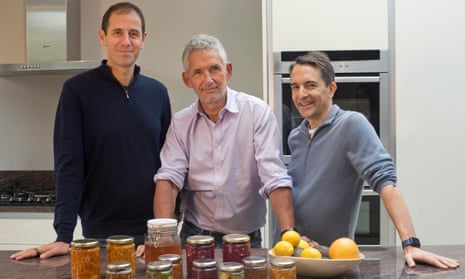That’s why Carpenter’s approach focusses instead on adapting those habits; making a series of small but meaningful changes in our daily lives, which add up to make a real difference – crucially, one we can maintain in the long run.
“Willpower is overrated,” he says. “If you don’t want to do something, like going to the gym when you’re tired after work, you’re going to struggle to achieve it.”
Instead, he believes we should work at making a few simple actions part of our routine. “As you practice them more and more, they should start becoming second nature to you and require less conscious effort to stick to them – they’re not things you’re dreading, they’re just part of your day,” he says. “At that point, you can add in another habit, if you want to.”
Start with a self-audit. “Take a proper look at your current diet and exercise routine and consider what you’d like to improve,” says Carpenter.
Then, rather than setting yourself a big, distant goal, such as “lose a stone”, focus on more specific actions which will help you achieve it, such as “eat more fruit and vegetables”. From the following habits, he suggests choosing a handful that appeal to you personally, are realistic for you to implement and powerful enough to take you towards your goal if you implement them consistently.
The aim isn’t to try to do everything: “In the context of fat loss, a majority of your results can come from a surprisingly short list of behaviours,” he says.
1. Prioritise nutritious, lower-energy-density foods
To lose weight, we need to eat less high-calorie food, but Carpenter suggests focusing on “what you can eat more of, rather than what you need to eat less of” to avoid obsessing over the latter.
Getting more nutritious, less highly-processed food into our diets is “quite possibly the most important habit you can nail which will promote fat loss,” he says.
A simple place to start is by eating more fruit and vegetables. In Britain, just 32.5 per cent of people eat the recommended five portions every day, but replacing some of the other food you eat with fruit and vegetables is an easy way to reduce your overall energy intake without counting calories.
Eating a salad as a starter has been proven to reduce how much people eat at the main course by an average of 12 per cent. Carpenter often eats a bowl of crudities such as baby tomatoes as he makes dinner, and adds finely-chopped or blended vegetables into sauces.
2. Eat protein for breakfast
Eating more protein can help promote fat loss, and it also plays a role in satisfying hunger and keeping our blood sugar steady, helping us avoid unhealthy snacks.
Some research has shown that giving teenagers higher-protein breakfasts such as an omelette, means they will be significantly less hungry than if they eat a carb-heavy breakfast such as oatmeal sweetened with sugar – to the extent that at their next meal, they ate 81 per cent more food after the oatmeal.
If you take people who usually skip breakfast and give them a high-protein breakfast instead, there’s evidence it can promote weight loss over skipping breakfast completely. So it makes sense that starting the day with protein, such as eggs or yoghurt, is a positive step.
3. Be mindful of fat
Not all dietary fat is bad – avocados, nuts and olive oil are all beneficial. But Carpenter points out that it’s very easy to consume in excessive quantities without even realising it. In the UK, most adults eat too much saturated fat via the likes of biscuits, cakes, pastries and red meat.
Grilling meat instead of frying, trimming off extra fat, eating smaller portions of sauces such as mayonnaise and opting for lean proteins such as chicken and fish are easy habit-adaptations. “You’ll be surprised how easy it is to make some little changes that add up to substantial reductions if you’re eating a lot of them,” says Carpenter.
4. Stop drinking your calories
We are consuming more of our calories from drinks than ever before – unsurprisingly, given that blended coffees containing milk and sugar are in the region of 200 calories.
Research shows that consuming sugar in liquid form doesn’t fill us up in the same way as eating the same amount in solid form, which means these drinks usually represent additional calories on top of everything we eat. Drinking a lot of sugary drinks is reliably linked with weight gain and worse health.
Carpenter recommends drinking water where possible, diluting sugary drinks like fruit juice and, if you can’t live without them, going for reduced calorie versions of fizzy drinks.
5. Increase your lifestyle activity
“Most people don’t realise your body burns more energy keeping you alive and moving around in daily life than from a typical workout,” says Carpenter.
Source: bing.com















/cloudfront-us-east-1.images.arcpublishing.com/pmn/MQFSFVVHQ5FIDF52X46ECFRDFM.jpg?w=80&resize=80,60&ssl=1)





